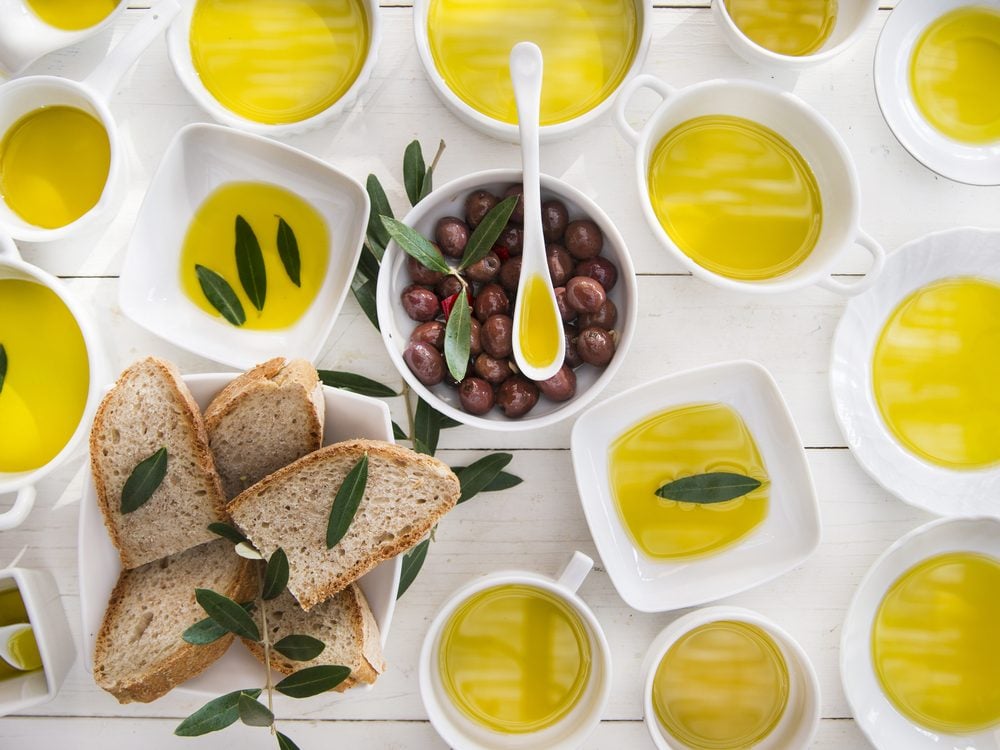
Olive oil might be the key to longer life
Greeks consume more olive oil than any other country (about 26 litres per person annually), and their Mediterranean diet has been linked to lower cancer rates, risks of heart disease, and occurrence of Parkinson’s and Alzheimer’s diseases.
New York Times Magazine wrote that heart-healthy olive oil was a potential reason that inhabitants of the Greek Island Ikaria just “forget to die.” TV chef Cat Cora told us, “My family in Greece drinks half a cup of extra virgin olive oil [EVOO] and warm lemon water in the morning for weight loss and health. They absolutely swear by it for keeping hunger pangs in check, helping with body maintenance, health and longevity.”
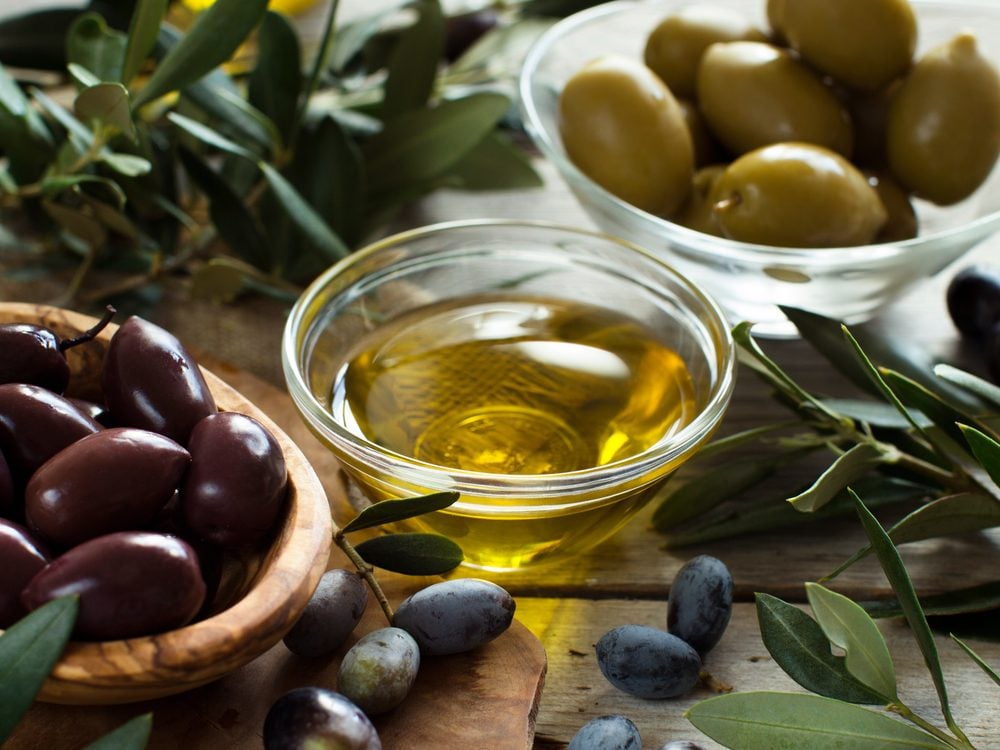
Just smelling it might be good for your waistline
A 2013 study conducted by the German Research Center for Food Chemistry indicates that even just smelling EVOO may lead to greater feelings of fullness: when the scent was added to foods via an aromatic extract, it lowered the number of calories consumed by study participants, and improved blood sugar response. Additionally, compared to other oils and fats, when EVOO was added to yogurt, the group that had eaten the yogurt enriched with olive oil showed the largest increases in blood levels of serotonin, a hormone associated with satiety.
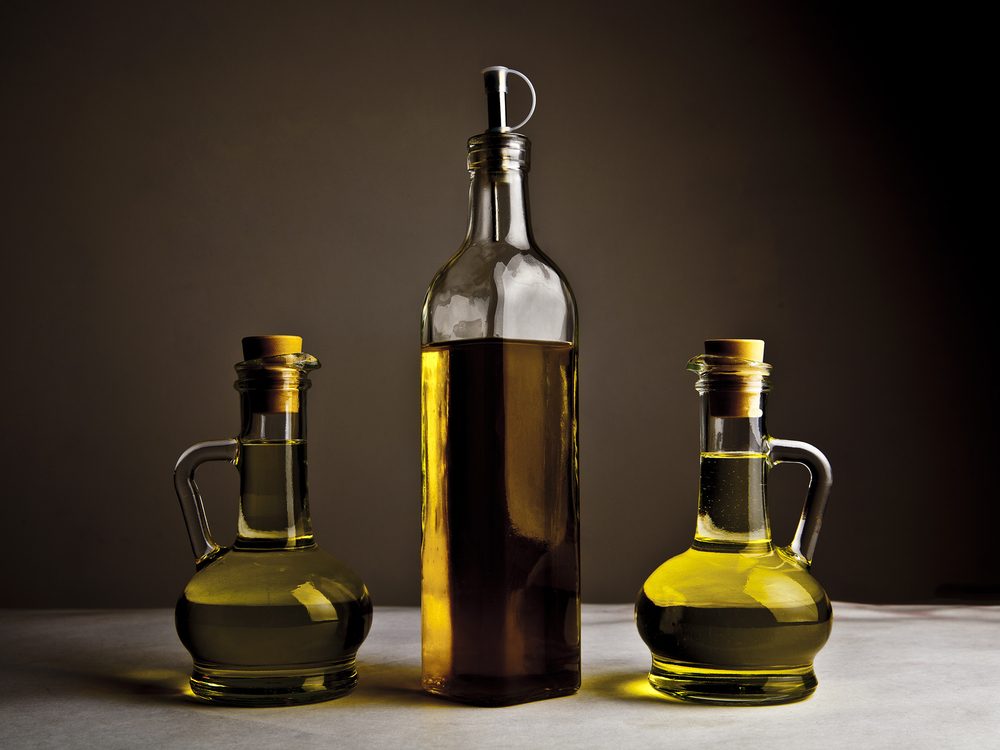
Try it for pain relief
The Monell Chemical Senses Center found that Ibuprofen and EVOO have the same kind of anti-inflammatory properties, even though the substances are otherwise completely unrelated. Their polyphenols (a type of antioxidant) act on the same receptor in the back of your throat, which is what can cause a ticklish sensation for some when they swallow it.
The Koroneiki varietal of EVOO in particular has the highest quotient of polyphenols, which also makes it great for external relief and beauty treatments on skin, hair, and scalp.
Here are 20 Antioxidant-Rich Fruits and Vegetables You Should Be Eating.
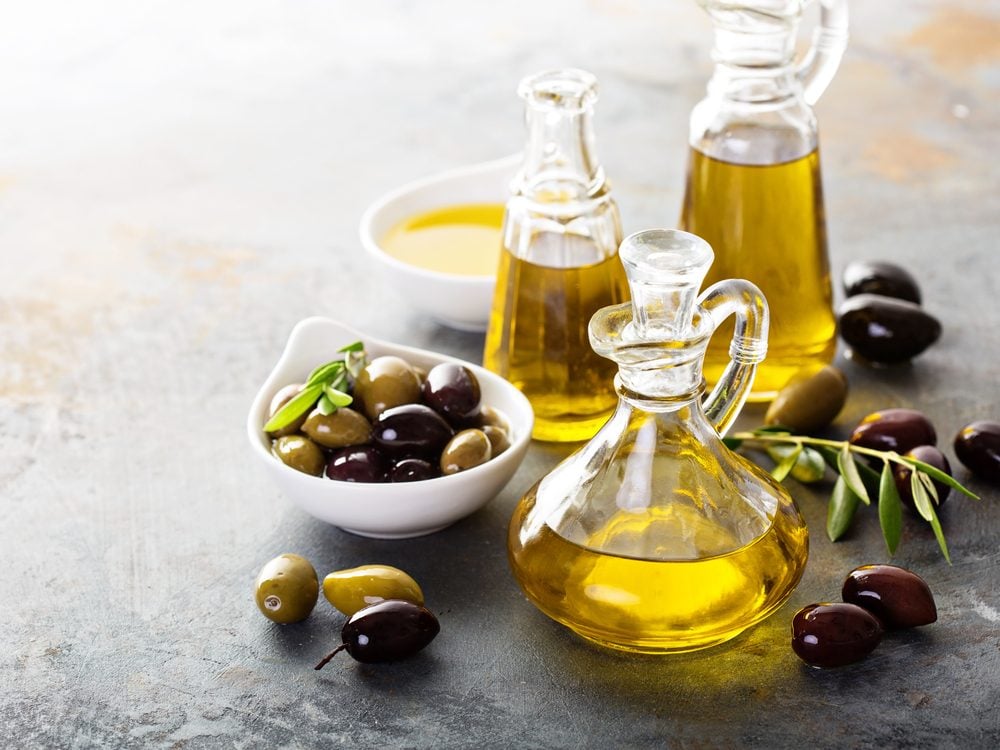
EVOO might cut down on accidental carcinogens
The smoke point of EVOO is almost 400 degrees, which is much higher than other popular cooking oils like canola (200 degrees), or corn and non-virgin olive oils (around 320 degrees each). According to the Cleveland Clinic, “Heating oil above its smoke point—the temperature at which the oil begins to smoke—produces toxic fumes and harmful free radicals (the stuff we’re trying to prevent in the first place). A good rule of thumb: The more refined the oil, the higher its smoke point.”
Check out 5 Things You Didn’t Know About Olive Oil.
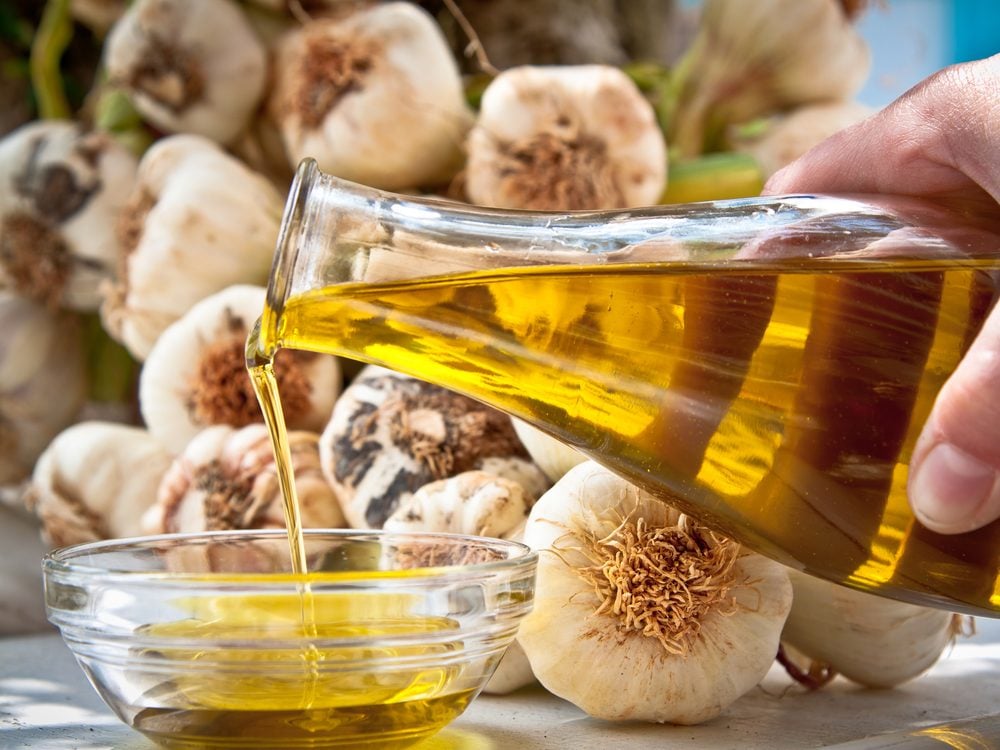
Olive oil is full of healthy fats
If a recipe calls for canola oil or butter, you can simply swap in olive oil. According to our food editor, use about 3/4 the amount listed (even if you’re baking cakes, muffins, and breads), and you’ll cut back on calories, saturated fats, and bad cholesterol.
Lower your cholesterol with these heart-healthy foods.

“Light” doesn’t necessarily mean healthier
Every olive oil has the same cholesterol and fat content, and they all have around 120 calories per tablespoon. A bottle classified as “light” is referring to the oil’s colour and flavour.
Check out our Salmon with Preserved Lemon and Green Olives recipe!
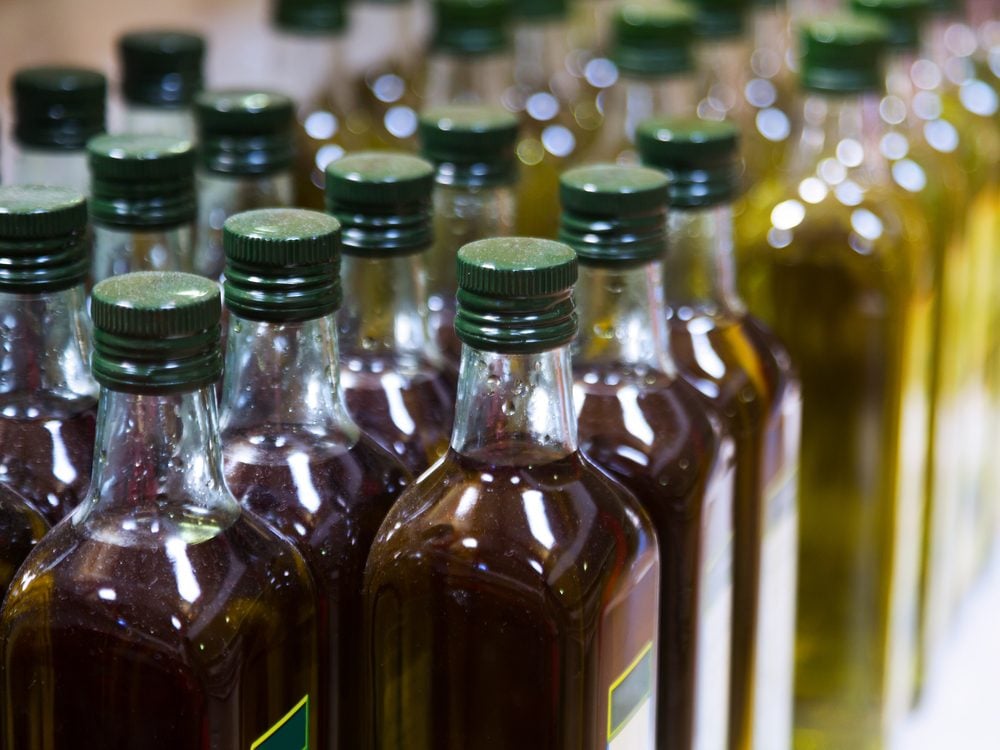
Labels can lie
“Bottled in Italy” doesn’t make it better; plus, the fine print might be: “May contain oils from Spain, Greece, Morocco, Tunisia.” That means most of the oil was likely produced elsewhere, before being shipped overseas to obtain that luxurious, coveted, they-can-charge-more Italian labeling.
The University of California, Davis conducted a study in 2012 that showed over 65 per cent of the EVOO found on grocery store shelves did not test as “Extra Virgin,” even though they were labelled that way, and instead contained other oil as fillers, and for additional colour and flavouring.

Olive oil can expire
Bright supermarkets can speed up the oxidation process if the oil sits there for too long, and it can go rancid. As long as it’s stored away from heat and light, however, an unopened bottle of good quality olive oil should last for up to two years from its bottling date.
Here are 5 Foods You’re Spoiling By Putting in the Refrigerator.
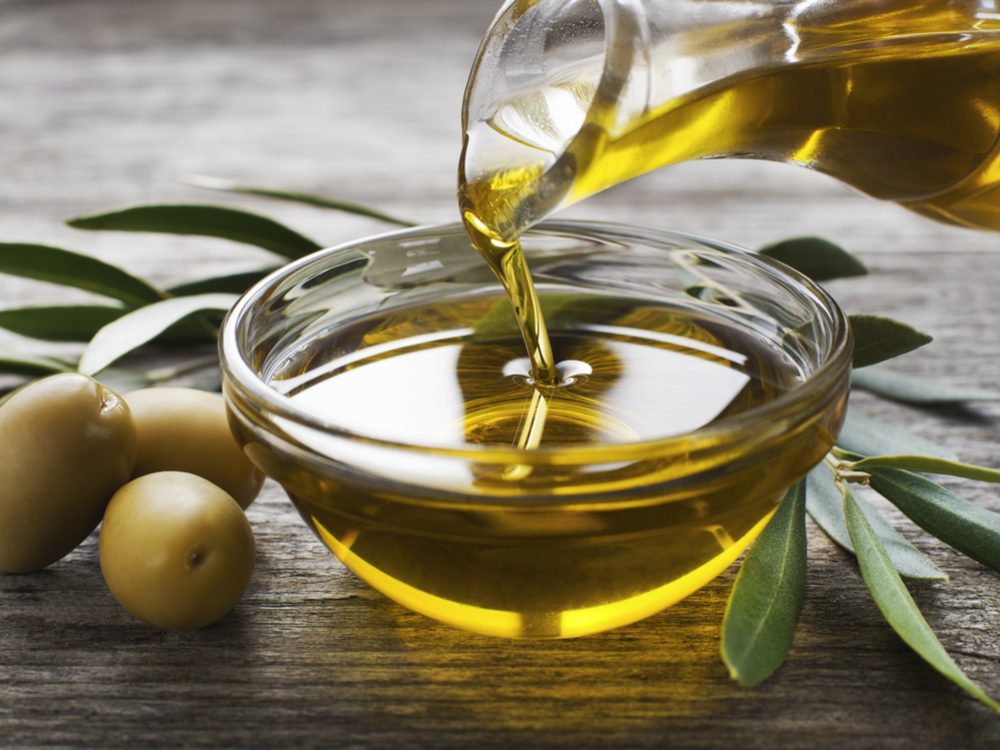
Use it to clear acne
It might sound a bit wonky, but many folks swear this works: Make a paste by mixing 4 tablespoons salt with 3 tablespoons olive oil. Pour the mixture onto your hands and fingers and work it around your face. Leave it on for a minute or two, then rinse it off with warm, soapy water. Apply daily for one week, then cut back to two or three times weekly. You should see a noticeable improvement in your condition. (The principle is that the salt cleanses the pores by exfoliation, while the olive oil restores the skin’s natural moisture.)
Pamper yourself with these simple, homemade facial masks.
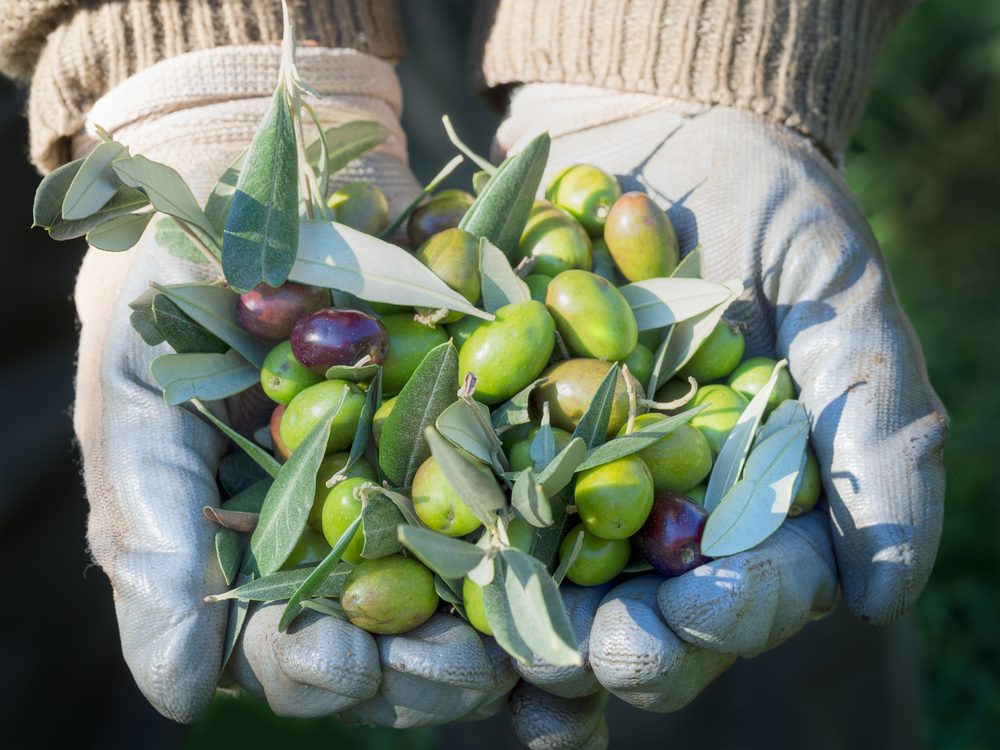
Who knew: it takes 1,375 olives just to make one 32-ounce bottle of olive oil
That’s over 15 pounds!
Looking for a new way to enjoy it? Try our Saffron Oil recipe.